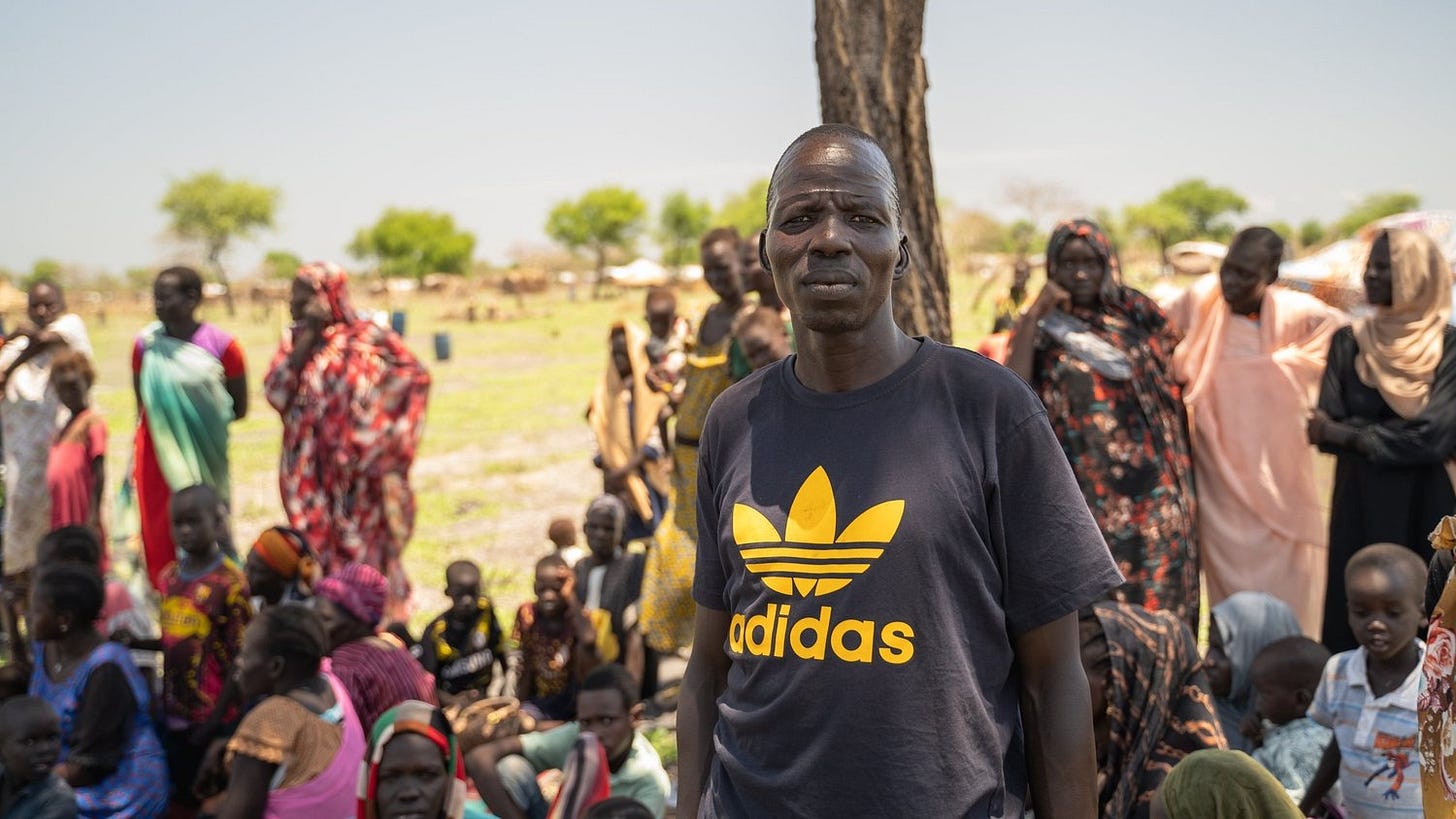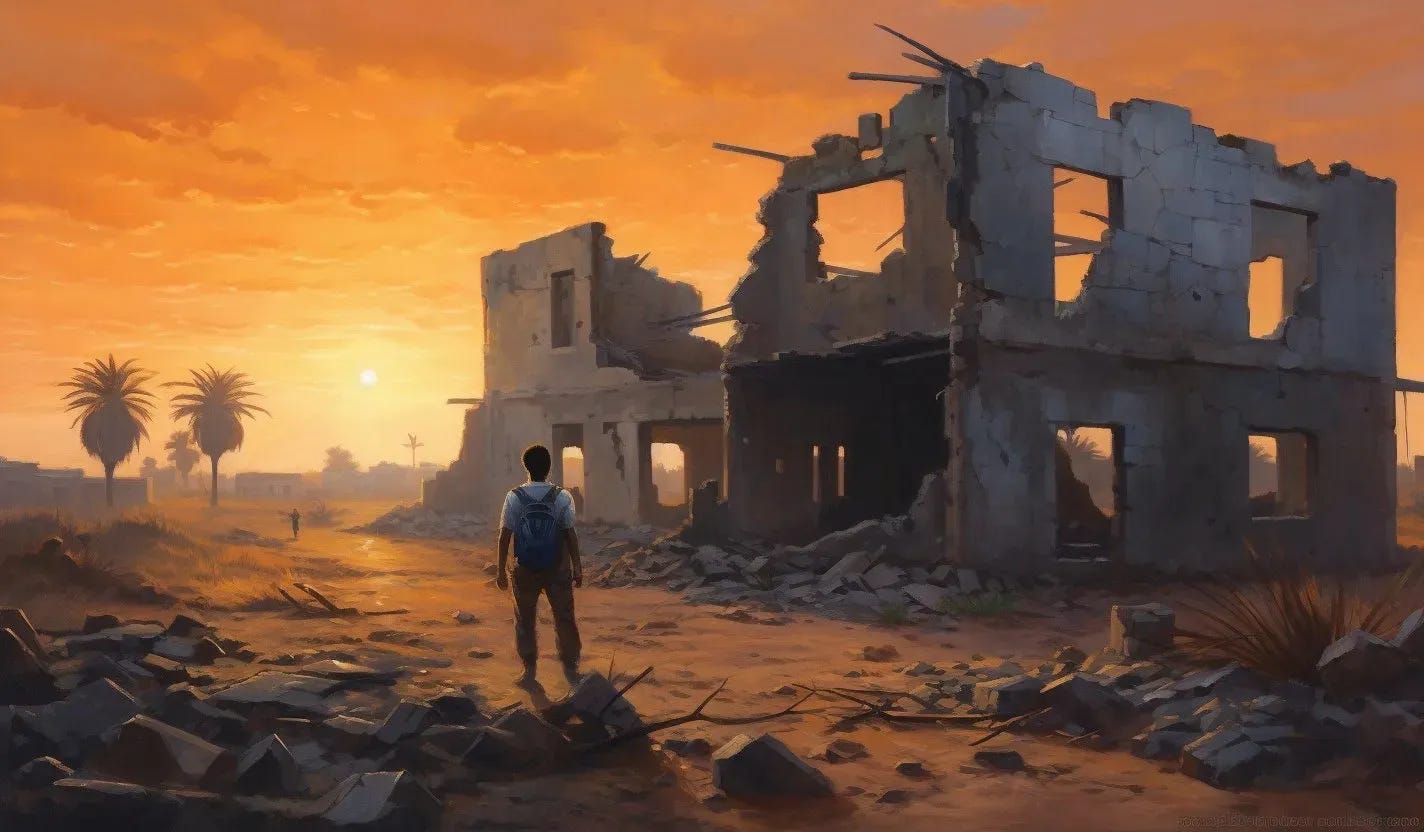Sudanese authorities halt arrests of South Sudanese refugees
Decision comes amid diplomatic pressure from South Sudan
Sudanese authorities have ceased the arrest of South Sudanese refugees and allowed those already detained to return to their communities, following intense diplomatic pressure from Juba and threats of retaliatory actions.
This move comes after Sudanese security forces launched targeted attacks on South Sudanese nationals across the country, stoking fears and uncertainty among the refugee population. The arrests, which took place in River Nile, White Nile, Gadaref, and Northern states, were part of a broader crackdown by Sudanese security forces that begun in late June and continued to mid-July 2024. This crackdown is driven by increasing paranoia over alleged foreign support for the Rapid Support Forces (RSF) in its war with the Sudanese Armed Forces (SAF) which begun last year.
The participation of some South Sudanese fighters on the side of the paramilitary RSF has exacerbated suspicions, leading to targeted actions against foreigners, particularly South Sudanese and Ethiopians.
One South Sudanese refugee who was arrested in Halfa in July said he has been allowed to return from Shajarab II refugee camp in Kassala State. He said he was arrested at work and taken to Shajarab without being allowed to go to his residence. He reunited with his family August 3 when he was allowed to return to Halfa from Shajarab.
“I was terrified when they took me from my home in Halfa. I thought I was going to be deported back to South Sudan, but because the route to South Sudan was blocked, I was taken to Shajarab instead and now they’ve let me go, and I’m back with my family and I hope that this war end in the very near future.”
Shajarab, a refugee camp located about 85 kilometers southwest of Kassala, the capital of Kassala State, primarily houses Eritrean refugees fleeing prosecution from the dictatorship of Isaias Afwerki.
In Gadaref, Kalangkit Machar (not his real name), who was detained during the crackdown in June, expressed his relief at being released.
“When they arrested me, I was told I would be sent to a camp far from here. But after a few days, they let us all go. I’m just glad it’s over,” Lual shared, reflecting the widespread anxiety among South Sudanese refugees who feared they would be forcibly relocated to harsh conditions in refugee camps.
The arrests triggered a strong response from South Sudanese officials. Stephen Lual Ngor, member of parliamentary committee on foreign relations confirmed that the South Sudanese government had intervened.
“The parliament instructed the foreign ministry to write to the Sudanese authorities, urging them to halt these arrests and respect the rights of our citizens. We even summoned the minister of foreign affairs here but due to other commitments, he didn’t come [to parliament] for questioning and we instead wrote to them,” he told Sudan War Monitor, adding that the situation had caused significant distress among the South Sudanese community in Sudan.
Hundreds of thousands of Sudanese nationals have fled to South Sudan following the outbreak of war in April 2023. The conflict has forced countless people to seek refuge in neighboring countries, with South Sudan becoming a major destination. According to the UNHCR, South Sudan hosts close to 170,000 Sudanese refugees and nearly 600,000 returnees as of July 2024. This influx has put a strain on the country's resources, which are already stretched thin due to South Sudan's ongoing economic crisis.
South Sudanese diplomatic sources said that the Sudanese government was pressured into halting the arrests following a stern warning from Juba that it would consider deporting Sudanese nationals living in the country if the crackdown on South Sudanese refugees continued.
“There was a clear message sent to Khartoum: if they continue to target our people, we will have no choice but to respond in kind,” said a South Sudanese diplomat who requested anonymity due to the sensitive nature of the issue.
The situation in Kosti, one of the locations where arrests were made, was described by Larco Bateah, a refugee who was also detained. Kosti, a city situated along the While Nile River close to Renk County of South Sudan’s Upper Nile State, has been a focal point for South Sudanese refugees seeking safety and refuge.
“They came in the night and rounded us up. We were taken directly to Jabelein and then to Renk. I stayed there for two weeks and then I came back. I first crossed from Renk and went to west Nile and then to Magenis and then to the Om Thungur [refugee] camp and then to Kosti,” he recounted.
Deng Malek, detained in Rabak on July 5, 2024, described the uncertainty of being forcibly returned to South Sudan. He said he was held in Jabelein but was never deported and was released three weeks later.
“We didn’t know what was going to happen to us. They just told us to get in the truck, and we were driven to a camp. But now we’re back, and it feels like a heavy weight has been lifted,” he said.
Sudan and South Sudan were once part of the same country until July 2011, when South Sudan became an independent nation. During the 1983-2005 civil war, many South Sudanese fled the rural areas of then Southern Sudan to urban centers in Sudan, seeking security and access to services.
Following South Sudan’s independence, a significant number of these individuals chose to remain in Sudan due to ongoing insecurity in their newly established country. The outbreak of a civil war in South Sudan in December 2013 saw hundreds of thousands more fleeing to Sudan, many of whom have since been reluctant to return, fearing persecution or violence in their homeland. Finally, northern Sudan itself erupted into civil war last year, further complicating the lives and identities of many southerners who were living in northern cities like Kosti, Rabak, and Gadaref.
News in Brief
American rapper Macklemore canceled his scheduled October concert in Dubai on Sunday to protest the UAE’s alleged involvement “in the ongoing genocide and humanitarian crisis” in Sudan. The rapper accused the UAE of supporting the RSF, which has been engaged in a devastating conflict with SAF since last year. The UAE has consistently denied these allegations.
Cable outages attributed to heavy rains and flash floods in the Haiya area of Sudan's Red Sea state have continued across much of the country for the second day in a row. This disruption has particularly impacted people in war-torn regions, cutting them off from communication with their families and aid organizations. Communications services were also interrupted in Omdurman and River Nile state, before intermittent service was restored on Saturday evening.
Sudan's army chief, General Abdel Fattah al-Burhan, has ruled out any possibility of negotiations with the RSF, vowing to continue the fight against the paramilitary group "even if it takes 100 years." Speaking at a press conference in Port Sudan, al-Burhan dismissed any chance of dialogue with RSF leader Mohamed Hamdan Dagalo, also known as Hemedti. His remarks follow the Sudanese Armed Forces’ refusal to participate in Geneva peace talks focused on achieving a ceasefire and facilitating humanitarian access.
Support our journalism
Thank you for reading Sudan War Monitor. We do this work because we believe that journalism is one accountability mechanism that ultimately can contribute toward peace and justice in Sudan—however distant that hope may be. Our work is intended to be a resource for humanitarians, civil society, ordinary Sudanese, diplomats, and news media. Subscribe or share to support our work and #KeepEyesonSudan.



